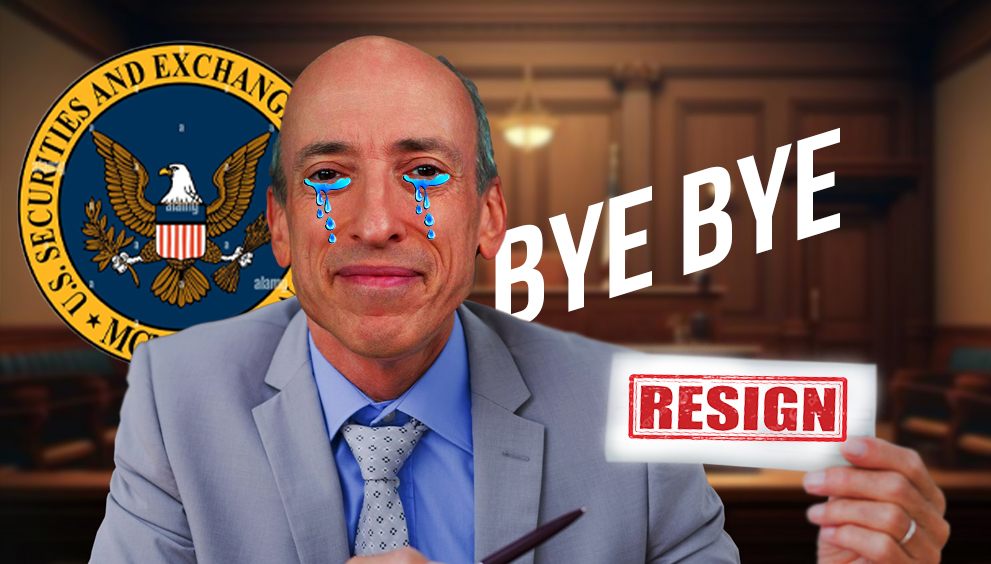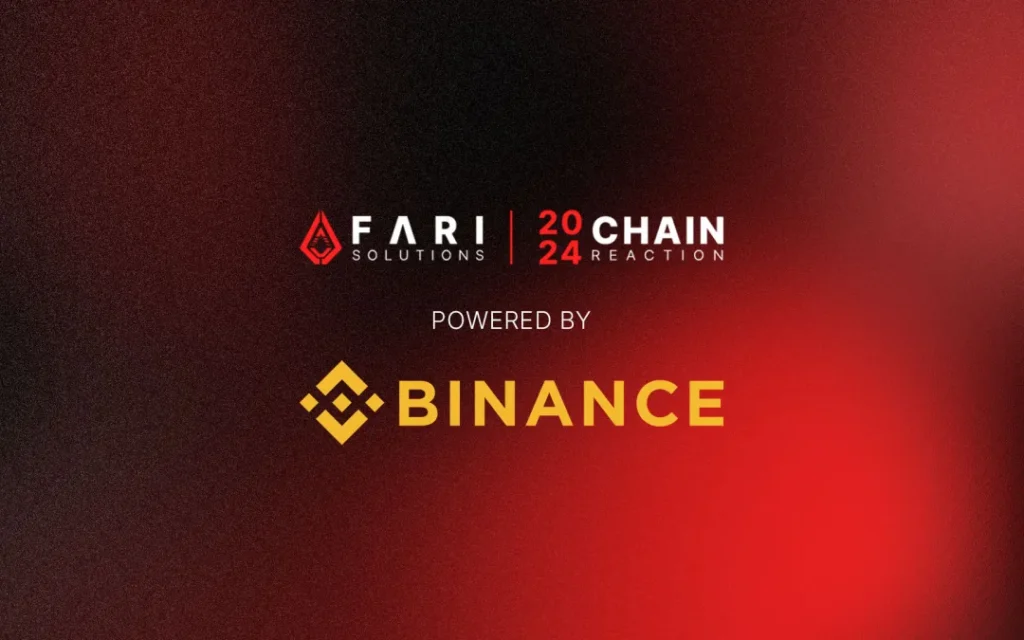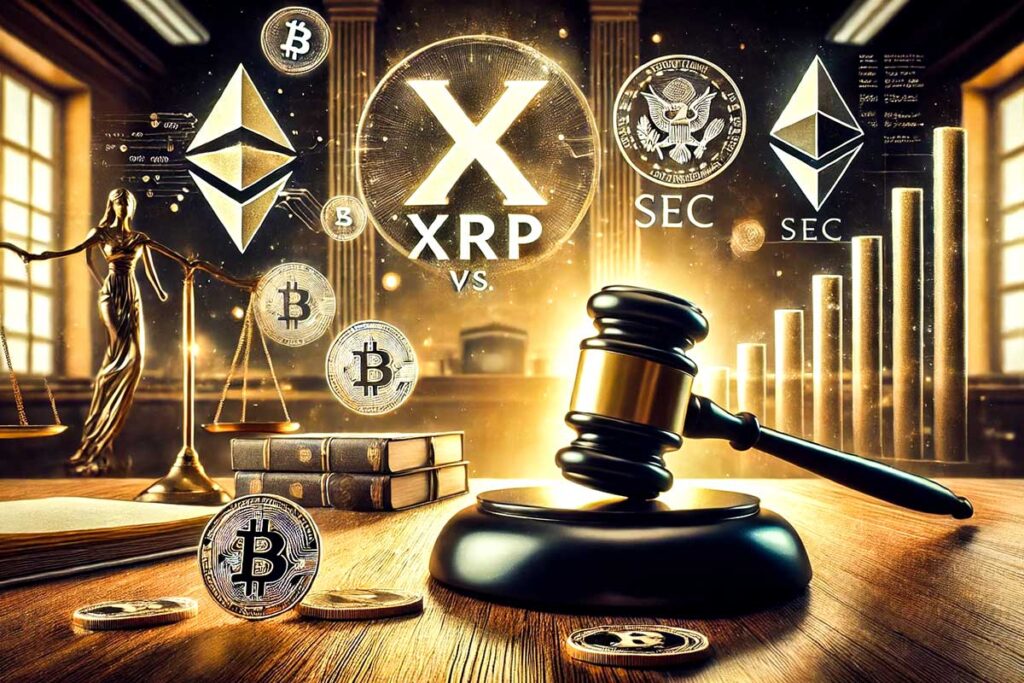Will Gary Gensler Leave the SEC by Year-End?

Key Insights
- SEC Chairman Gary Gensler might leave office by the end of the year, possibly by December 31
- This shift may impact current cases being heard, such as the SEC case against Ripple Labs.
- Changes in SEC leadership might also bring much-awaited clarity to the crypto sector regarding the regulatory direction of digital assets.
Rumors about SEC Chairman Gary Gensler’s future are swirling, as some speculate that he may be leaving the agency soon.
Speaking with Thinking Crypto recently, Cody Carbone from the Digital Chamber suggested that Gensler’s speech in New York might have been a subtle farewell, sparking speculation that his tenure could end sooner than expected
Carbone observed that Gensler might leave office by the end of the year, possibly by December 31. This aligns with historical patterns where SEC chairs resign ahead of a presidential transition involving a new party.
Said the crypto thought leader, “I wouldn’t be surprised if he was gone by the end of the day, the end of the week, or before the end of the year. But I think that’s the timeline I’m looking at—December 31st, I think he’s gone.”
With the presidential inauguration looming, Carbone thinks Gensler will probably leave the agency when it occurs, especially since a Republican commissioner may be promoted to chair until an official arrives in 2025.
This shift in leadership may impact current cases being heard, such as the SEC case against Ripple Labs, the company that has been making waves in the crypto world since 2020. A new SEC chief may clarify different regulatory directions, thus impacting high-stakes lawsuits such as this against Ripple.
Trump has already appointed Vivek Ramaswamy and Elon Musk to the Department of Government Efficiency, prompting DOGE to skyrocket to $0.46 from $0.1 within 10 days.
Ripple vs. SEC – Key Facts and Developments
XRP Sales Case
In December 2020, the Securities and Exchange Commission filed a lawsuit accusing Ripple Labs Inc. of raising more than $1.3 billion by selling XRP as an unregistered security.
According to the SEC, Ripple’s token, XRP, acted as a security under federal law, failing to meet the adequacy of registrations.
Ripple countered that XRP is actually a currency and not a security, and thus it should not be regulated by the SEC. The case became a high-profile test for the regulatory treatment of cryptocurrencies within the United States.
One major swing in favor of the case was made in August 2023 when Judge Analisa Torres of the District Court for the Southern District of New York ruled that Ripple’s XRP retail sales were not securities.
This ruling partially favored Ripple and was considered a welcome development for the crypto space, as many crypto transactions are outside the conventional securities laws.
Institutional Sales Case
While Ripple did prevail in part over retail sales, the court ruled otherwise concerning XRP’s institutional sales. It recognized that Ripple had indeed pitched XRP to institutional investors and that the sales were, therefore, classified as securities.
The SEC originally fined Ripple $2 billion; however, in August 2024, it reduced this to $125 million, a huge reduction recognizing that regulatory concerns exist.
Though the SEC appealed the ruling concerning institutional sales, legal experts do not think the appeal will succeed. The case is scheduled for initial arguments before appellate courts by May 2025, but a full reversal of Ripple’s gains is unlikely in general terms.
Change in SEC leadership might also be one of the leading factors that will finally determine the direction the case takes, bringing much-awaited clarity to the crypto sector regarding regulatory direction toward digital assets.
Cases Against Crypto by Gary Gensler
Since his appointment, Gary Gensler, the newly appointed SEC chairman, has been very aggressive against the cryptocurrency industry. He targets tightening regulatory oversight over digital assets and bringing these within the SEC’s purview.
Perhaps a less-known fact is that Gensler, a former MIT professor with expertise in blockchain and financial technology, has argued that most cryptocurrencies should be regulated as securities, thus imposing stringent SEC rules. Before his stint as the SEC’s chief, he was seen as a pro-crypto guy.
Undoubtedly, he has also overseen a series of high-profile enforcement actions against major crypto firms, raising the hackles of the crypto community over regulatory overreach.
Another notable case during his tenure is the one against Ripple Labs. In December 2020, the SEC charged Ripple with conducting an unregistered securities offering by selling XRP. As the case unfolded, this marked a defining moment in crypto regulation. The SEC held on to litigation even when courts started declaring that some retail sales made by the company were not securities.
Gensler has brought enforcement actions against leading cryptocurrency exchanges, such as Coinbase and Binance because they are unregistered securities exchanges.
In June 2023, the SEC brought an action against Binance, claiming the exchange offered unregistered securities and failed to adequately protect customer funds.
The SEC charged Coinbase with operating an unregistered brokerage because it listed tokens the SEC contends are securities. This has led to heated debates about whether the SEC overextends itself in its authority by failing to provide clarity within this industry.
Another prominhttp://Coinbaseent case pursued by the SEC against crypto companies included the case against MetaMask, in which the crypto wallet was termed an exchange because it provided swapping, DeFi, and buying and selling services.
Further, the staking platform Rocketpool has been named a crypto issuer since it issued Liquidity Tokens based on the Crypto staked on its platform.



















![Top Altcoins in October [2024] You Should Look Out For 19 Top Altcoins in October [2024] You Should Look Out For](https://cryptolandoff.com/wp-content/uploads/2024/10/Top-Altcoins-in-October-2024-You-Should-Look-Out-For.jpeg)































































































































































































